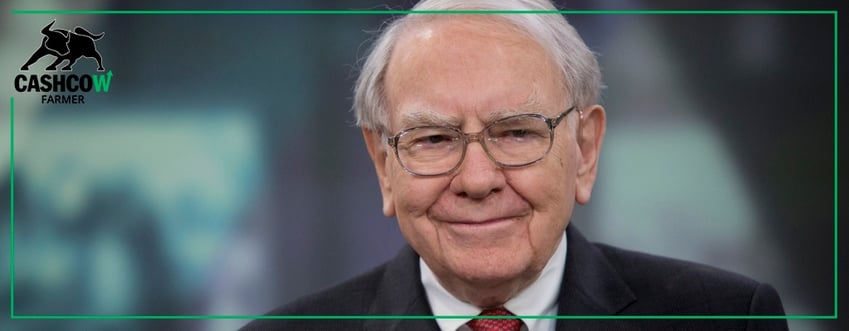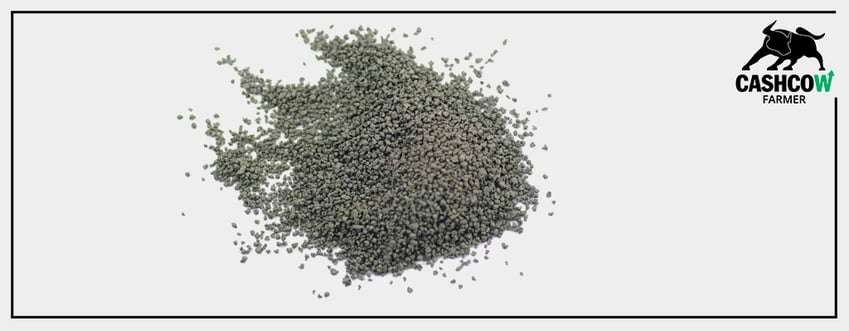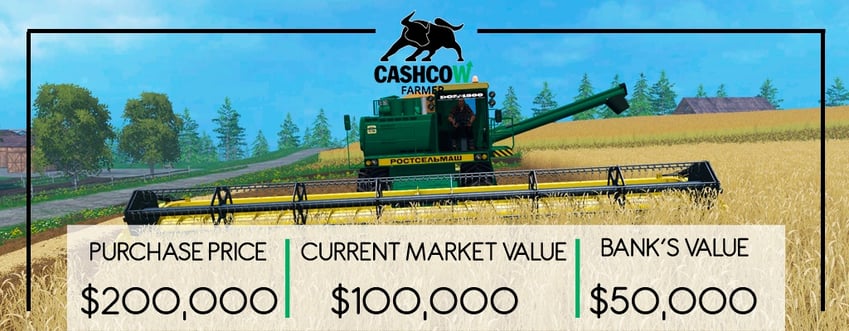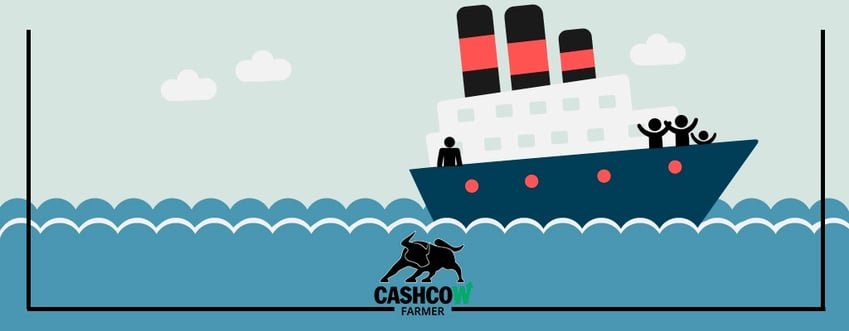Whether you’re running a lemonade stand or a 100,000-acre farm, "cash is king

 ". That was, is, and always will be true.
". That was, is, and always will be true.
As I’m writing this, the financial markets have just gone through a crazy week. The DOW has turned a loss for the year; the last 5-7 trading days have been losses. With the stock market and commodities down, everyone with money in publicly traded investments seems to be running for the door, converting everything to cash.
There’s really only one way to stand secure while everyone else panics about finance, and that’s having enough cash. In particular, there are five reasons cash will always have its place on a financial throne.
Don't Have Time To Read.... Subscribe on itunes to our podcast or click play above...
1) Liquidity
In your mind, who’s the greatest money manager of our generation?
You don’t even have to think about it: it’s  Warren Buffett
Warren Buffett  . If you google his name along with “cash is king,” or simply “Warren Buffett loves cash,” you’ll find tons of articles about how he keeps as much cash as he can. He says a “pile of cash” is something everyone should have as a savior in a tight spot.
. If you google his name along with “cash is king,” or simply “Warren Buffett loves cash,” you’ll find tons of articles about how he keeps as much cash as he can. He says a “pile of cash” is something everyone should have as a savior in a tight spot.
If a farmer buys really high-priced land and the land values plummet, the bank might be calling in some loans. They’re going to tell the farmer he’s under water on his notes, and he’ll need to use some cash to catch up. At that point, he’d better have cash on hand.

Buffett’s company Berkshire Hathaway is worth a little over $300 billion, and his cash position is over $60 billion, which is a whopping 20%. You’re definitely a money master if 20% of your market value is in cash.
Farmers can find this percentage for their own operations. If a given farmer were to sell everything in his farming operation right now, the resulting cash total would be his current market value.
Let’s assume total market value is $10 million. 20% is $2 million, which would become the farmer’s ample safety net if aspired to match Warren Buffett’s sizeable percentage. But remember, that’s on the high end.
I would encourage farmers not to let their cash position fall below 5% of their farm's net worth. That’s a good and attainable target. Even at 5%, they don’t have to worry about financial strain. 5% of that same $10 million operation is $500,000, a good amount of cash. If they don’t do a good job marketing commodities, or some other strain occurs and they lose money, they can still sustain their business.
There are times to aggressively grow and times to simply maintain. In a recession, which I consider us to be in, John Deere just reported a 40% drop in sales. If John Deere doesn’t have a good cash position, they could be in a bankruptcy position. They are in a maintenance phase.

A final note about liquidity: Buffett says cash is dry powder that you can quickly fire. If you go to a land auction and see that a piece of land is selling for a great discount, you can buy it now and finance it later. (And yes, you should always finance purchases you can’t deduct.)
2) Financing Power
When farmers go to buy anything of high value, they have to present a balance sheet. Each one of those assets on the balance sheet has financing power.
If a farmer goes to the bank with $1 million in cash and wants to borrow another million to buy land, the banker will have no reservations. Cash has at least a “one to one” power. Realistically, he could probably go to the bank with $1 million and be approved to borrow twice as much.
 Land is seen by banks at about 70% of its market value. So if a farmer has a $5,000/acre piece of land, his borrowing power against that land is about $3,500 dollars.
Land is seen by banks at about 70% of its market value. So if a farmer has a $5,000/acre piece of land, his borrowing power against that land is about $3,500 dollars.
Machinery is worse. If the farmer bought a combine two years ago at $200,000 dollars, it might be worth $100,000 today. The bank will value that asset even lower: somewhere between 40-50% of its market value, which means it’s worth about $50,000 to him.

This is another reason why cash is king. The financing power it holds is astronomical compared to the power of other assets.
3) Preservation of Net Worth
Farmers must fall back on the #1 rule of investing: Preservation Of Capital.
Cash positions don’t fluctuate much. If you have $100,000 in cash, it’s worth $100,000 in cash. On the other hand, if you had $100,000 in stocks during the week prior to this writing, it’s probably about $80,000 now. The same goes for other assets; machinery and land can lose their value—fast.
4) Psychological Comfort
If you ever watch Warren Buffett on TV, you’ve never seen a more relaxed guy when it comes to financial markets.
It makes sense. When 20% of your company’s market value is in cash, you’re cool as a cucumber all day because you’re never going to go out of business. You have the best financial cushion possible.
 When farmers have a huge cash position, they’re relaxed to make better decisions. Many, however, are nervous now. Some spent a lot of cash on machinery in the last few years, their cash position is low, and they worry about whether they’re producing corn for more than they can sell it for.
When farmers have a huge cash position, they’re relaxed to make better decisions. Many, however, are nervous now. Some spent a lot of cash on machinery in the last few years, their cash position is low, and they worry about whether they’re producing corn for more than they can sell it for.
But the farmer in a good cash position isn’t even nicked by nervousness.
5) Opportunities

When everybody’s on one side of the boat, you have to be on the other side. As Buffet says, when everyone’s fearful, you need to be greedy, and when everyone’s greedy, you need to be fearful.
Right now, the general financial landscape is full of fearfulness. If land is for sale, there won’t be a lot of buyers, which means that land prices will be better than they were last year.
If you have a strong cash position, you can pick up land and machinery that will add value to your operation at good prices.
They say “luck favors the prepared.” I’ve always believed that. If you’re prepared, you’re ready to execute on opportunities. You can buy publicly traded companies and buy land when everyone else is running away.
That is, if you have a strong cash position.
Conclusion
If you need a little more convincing of the kingship of cash, google Warren Buffett and just listen to him talk. He maintains great return on investment without using 100% of his cash. He always has his “dry powder.”
If your cash position is lower than 5%, convert to cash those assets that aren’t providing you lots of value. Sell off old machinery and scrap piles sitting around. Don’t spend lavishly.
Once you have 5%, shoot for 10%. Try to get up to that Buffett level of 20%. You’ll never have an issue with financing, you’ll always be ready for time-sensitive opportunities, and you’ll never lose sleep at night worrying about paying your bills.
For more specific instruction on when farmers should or shouldn’t use cash, check out this article on farm finance.
Top Trending Reads:
- Farm Software: 5 Tools Every Farmer Should Be Using
- How To Make Your 10 Year Old A Multi-Millionaire by 40 and a Multi-Billionaire by 70
- Using Futures Options In Grain Marketing
- 7 Proven Strategies to Overcome Low Commodity Prices





